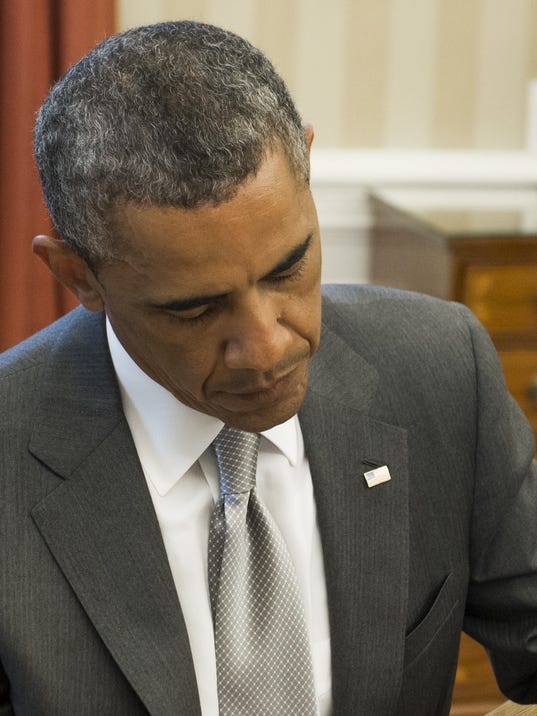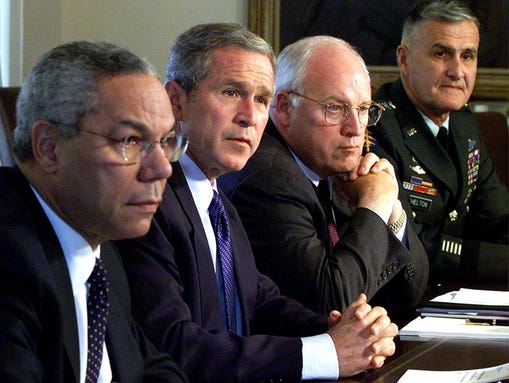... An emergency declared by President Jimmy Carter on the 10th day of the Iranian hostage crisis in 1979 remains in effect almost 35 years later.
A post-9/11 state of national emergency declared by President George W. Bush — and renewed six times by President Obama — forms the legal basis for much of the war on terror.
Tuesday, President Obama informed Congress he was extending another Bush-era emergency for another year, saying "widespread violence and atrocities" in the Democratic Republic of Congo "pose an unusual and extraordinary threat to the foreign policy of the United States."
Those emergencies, declared by the president by proclamation or executive order, give the president extraordinary powers — to seize property, call up the National Guard and hire and fire military officers at will.
"What the National Emergencies Act does is like a toggle switch, and when the president flips it, he gets new powers. It's like a magic wand. and there are very few constraints about how he turns it on," said Kim Lane Scheppele, a professor at Princeton University.
 |
| CLICK GRAPH to ENLARGE |
If invoked during a public health emergency, a presidential emergency declaration could allow hospitals more flexibility to treat Ebola cases. The Obama administration has said declaring a national emergency for Ebola is unnecessary.
In his six years in office, President Obama has declared nine emergencies, allowed one to expire and extended 22 emergencies enacted by his predecessors.
Since 1976, when Congress passed the National Emergencies Act, presidents have declared at least 53 states of emergency — not counting disaster declarations for events such as tornadoes and floods, according to a USA TODAY review of presidential documents. Most of those emergencies remain in effect.
Even as Congress has delegated emergency powers to the president, it has provided almost no oversight. The 1976 law requires each house of Congress to meet within six months of an emergency to vote it up or down. That's never happened.Read the rest of the story HERE.
If you like what you see, please "Like" us on Facebook either here or here. Please follow us on Twitter here.




No comments:
Post a Comment